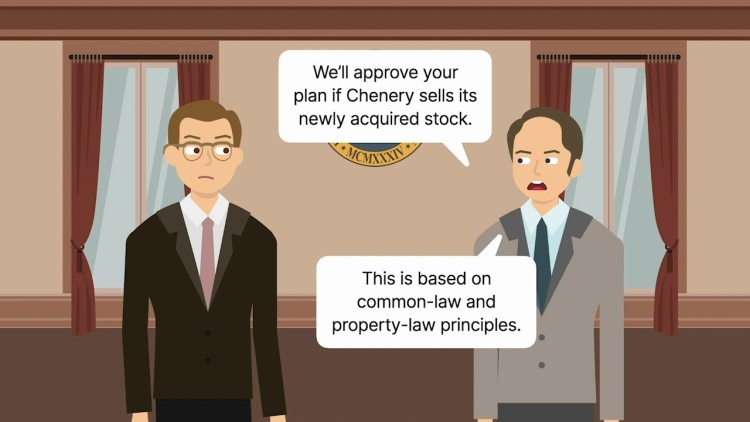In re Federal Water Service Corp.
Securities and Exchange Commission
18 S.E.C. 231 (1945)

- Written by Eric Cervone, LLM
Facts
The Federal Water Service Corporation (Water Service) sought approval by the Securities and Exchange Commission (SEC) for a complex corporate reorganization. Chenery Corporation owned a controlling block of stock that included voting rights, which allowed Chenery to select Water Service’s corporate management. In order to maintain a controlling interest in Water Service’s voting rights, Chenery obtained additional stock during Water Service’s reorganization. The SEC determined that Chenery had to divest this recently obtained stock. The SEC justified this determination through an understanding of judicial precedent that corporate management could not trade in a corporation’s stock during a reorganization, due to the management’s fiduciary obligation to all shareholders. The SEC stated that it was acting as it believed a court of equity would in the same situation. Chenery brought suit challenging the SEC’s order. On appeal, the SEC argued that regardless of its application of judicial precedent, its order should be upheld on other grounds, including the SEC’s experience and expertise in overseeing similar corporate reorganizations. The Supreme Court rejected the SEC’s argument and remanded the issue. On remand, Chenery proposed the same plan that the SEC previously rejected.
Rule of Law
Issue
Holding and Reasoning (Per curiam)
What to do next…
Here's why 907,000 law students have relied on our case briefs:
- Written by law professors and practitioners, not other law students. 47,100 briefs, keyed to 996 casebooks. Top-notch customer support.
- The right amount of information, includes the facts, issues, rule of law, holding and reasoning, and any concurrences and dissents.
- Access in your classes, works on your mobile and tablet. Massive library of related video lessons and high quality multiple-choice questions.
- Easy to use, uniform format for every case brief. Written in plain English, not in legalese. Our briefs summarize and simplify; they don’t just repeat the court’s language.





